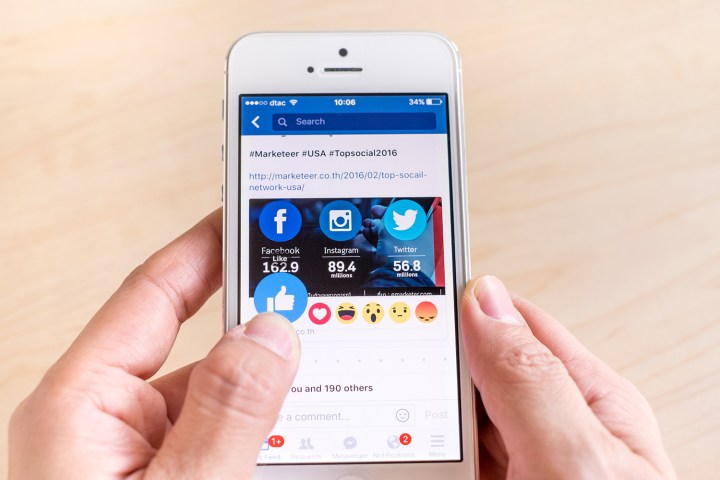
This time around, the errors affected Live videos, and the social network’s like and share counts. The former saw the platform misallocate the viewer “reactions” a live-stream was receiving (which occur in real-time and during video replays). Instead of counting the multiple reactions per unique user in the “reactions on posts” metric, the platform mistakenly lumped those insights in to the “reactions from shares of posts” section. Facebook insists that “that total counts were and are correct; some of them were just captured in the wrong reporting column when broken out.”
As a result of the blunder, the stats for Live video reactions are going to be impacted in a major way going forward. From mid-December, Facebook’s fix for the issue will see “reactions on post” metrics increase by 500 percent on average, whereas “reactions from shares of post” will inevitably decrease by 25 percent on average. Facebook did not clarify when exactly this so-called “misallocation” began, or when it was first spotted.

Facebook Live has found considerable success, thanks to the company’s promotional campaigns and its multimillion-dollar media content deals. Facebook has also boasted of higher engagement rates for videos throughout the year, which led to the introduction of a News Feed update that gave live-streams more prominence. However, this particular discrepancy is a blow to the format on Facebook. Add to that the fact that Facebook’s push to make its metrics reporting more transparent was kicked off by miscalculations that affected video viewing times, and a worrying trend begins to emerge for advertisers.
The other error reported on Friday concerns a difference between the metrics count for the “like” and “share” buttons via Facebook’s Graph application programming interface (API) and its mobile app’s URL search bar. The Facebook plugins in question count the number of likes of a web URL off Facebook, the number of shares of a URL off Facebook, and the number of likes and comments on stories on Facebook about a URL. The company said the following in regards to the error: “We are working to resolve this issue so that the Like and Share button metrics and our mobile search query metrics match up, and we will notify partners as soon as we have an update.” Again, it is unclear when this mix-up began, and when it was first spotted.
Additionally, Facebook also announced it is updating its estimated reach methodology to help advertisers gauge the number of people that will potentially see and interact with their campaigns. “We’re improving our methodology for sampling and extrapolating potential audience sizes,” Facebook wrote. “This will help to provide a more accurate estimate for a given target audience and to better account for audiences across multiple platforms (Facebook, Instagram, and Audience Network).”
To keep up with Facebook’s metrics reporting , you can follow its “FYI” blog posts on the topic here.

